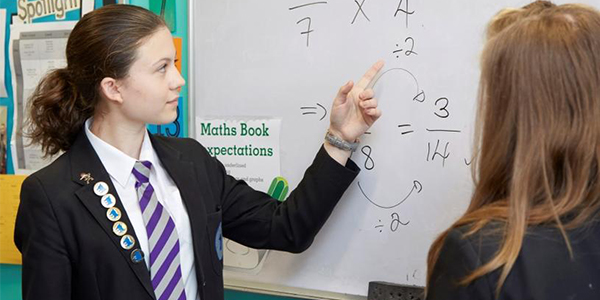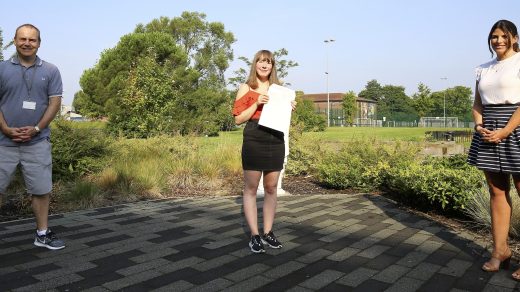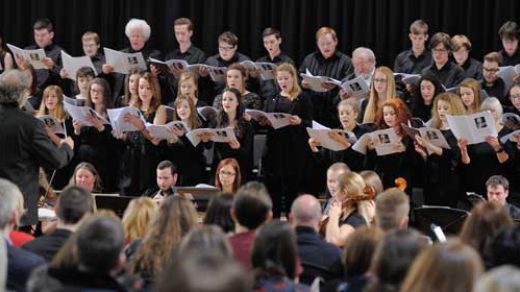Businesses and teachers highlight concerns over pandemic’s impact on young people’s career opportunities

New research has highlighted significant concern amongst both businesses and teachers about how prepared young people are for the world of work – particularly following the COVID-19 pandemic.
The polling is released by education charity Teach First as it launches a new report, Rethinking Careers Education: Investing in Our Country’s Future. The report makes a series of recommendations on how improving careers education – and increasing business engagement with schools – can help level up opportunities for young people from disadvantaged backgrounds.
The new research reveals that eight in 10 teachers (79%) believe their pupils are less ready for the world of work when compared to previous years, while more than half of teachers in schools with the most disadvantaged pupils (55%) believe the pandemic has negatively affected pupils’ perceptions of their career prospects.
Teach First also conducted a survey of over 500 HR decision makers from British businesses and found they share this concern, with over half (56%) saying they are concerned that ‘lost learning’ from the pandemic will exacerbate the skills shortage amongst pupils and students.
While grades are hugely important, the research suggests that other skills are also highly valued by employers. When asked to select the top three skills that they would consider most if recruiting young people, they were most likely to choose broader soft skills (69%), literacy and numeracy (54%), and digital and IT skills (48%).
However, when asked to give their assessment of the preparedness of current school, college and university leavers, 72% of businesses said that they were concerned about their level of soft skills. They also reported concerns about the level of literacy and numeracy (68%) and digital and IT skills (52%).
In their new report Teach First argues in favour of a series of recommendations which they believe could make a tangible impact on young people’s employability. Nearly seven in 10 (69%) of teachers agreed that improved careers education would decrease the number of young people that end up classified as Not in Education, Employment or Training (NEET).
To help tackle this, Teach First believe careers education needs to start at primary school level. Teachers agree, with seven in 10 (71%) primary schools teachers believing career-related learning for their pupils will raise their pupils’ awareness of different career pathways, and two-thirds (66%) said it will raise their aspiration.
The Department for Education (DfE) recently made a welcome commitment for a new careers programme for primary schools in disadvantaged areas in the recent Schools White Paper. In order to be as effective as possible, Teach First wants the DfE to work with sector leaders and publish a framework for effective careers learning in primary schools based on the Gatsby benchmarks and pair this with a new fund that trains and supports primary teachers working in disadvantaged areas.
Based on their own experience of successfully training Career Leaders in secondary schools, Teach First estimate this would cost £8.5m to support the top 10% most disadvantaged primary schools by pupils’ free school meal eligibility – which is approximately 2,000 primary schools.
The report also calls for a series of other key recommendations, including:
- Large employers to offer blended work experience programmes for young people from disadvantaged backgrounds. Whilst in-person work experience will continue to be crucial, online options offer employers a chance to diversify their recruitment and widen participation – particularly to regions outside of London.
- Large employers should collect and publish socioeconomic background data to inform their outreach work with schools and recruitment policies. This will ensure disadvantaged pupils, who are far less likely to access work placements through their family networks, are helped to secure the same opportunities for vital career knowledge and experience.
- The Department for Education should use destinations data to target additional transitional support at schools and colleges that serve disadvantaged communities.
Russell Hobby, CEO of Teach First, said: “Our country’s long-term prosperity depends on the next generation of young people. Careers education is an essential part of that – making a significant impact on a young person’s development at school, as well as their future employment opportunities. Schools do their best to prepare pupils for the world of work, but that is not their core purpose. That is why we believe it is essential that employers are involved in shaping the future of careers education.
“For too long, securing high quality careers advice and work experience has been a postcode lottery – that must change. With concerns over the cost-of-living crisis, and a potential recession later in the year, it’s vital that we do everything we can to give our young people the best possible chance to succeed and thrive in the world of work”.
Simon Wareham, Teach First careers leader and assistant principal at Southmoor Academy, said: “To accommodate all our work, our careers education team has doubled in size. As school budgets are always limited, I work with our headteacher to adapt existing roles and school funding. We also rely on business partners to support with free resources, travel support and activities. Thankfully, many employers are invested in supporting our pupils and helping them to consider career options.
“Ultimately, all schools need to be equipped to provide their pupils with a complete education. We are passionate about making sure all of our pupils have the skills they need to be well prepared to go out and excel in the wider world.”








